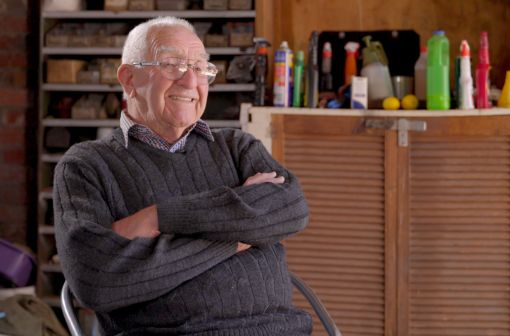“The way I like to define couple goals is: ‘Can we develop really healthy habits so that our relationship stays strong?’”—Gemma Cribb, psychologist, Equilibrium Psychology.
Key points
- In over 20 years of research, the Australian Unity Wellbeing Index has found that relationships and achieving in life form part of the “golden triangle of happiness”.
- Setting goals as a couple can help you to delve into the smaller details that contribute to a healthy relationship and identify what’s working and what’s not.
- The “magic wand question”—what’s the one thing you’d change about your relationship if you had a magic wand?—can help you to prioritise your goals.
You’ll often see the hashtag #couplegoals on Instagram in a post by one half of an unbearably smug duo. Typically, the words will caption some cloyingly romantic image of the pair walking down a sunset beach, smooching under a Parisian landmark, or snuggling up together over a Champagne dinner.
Such posts broadcast that the couple is (ostensibly, at least) enjoying a picture-perfect relationship full of love, laughter and the artful use of Instagram filters. All of which, quite frankly, is enough to put you off the “couple goals” term for life.
But while the phrase has been hijacked by social media, its underlying meaning is genuinely worth exploring. Why? Because it unites two ideas that are prime contributors to our all-round happiness and Real Wellbeing.
For starters, the Australian Unity Wellbeing Index—research conducted in partnership with Deakin University over more than 20 years—consistently shows that relationships are one of the three vital pillars in the “golden triangle of happiness”.

People who are married notch up the highest wellbeing scores, followed by those in de facto relationships.
In addition, however, the Wellbeing Index also reports that “achieving in life”—setting and nailing goals—is another of the triangle’s key components.
But that process of achievement can become considerably harder when you need to take someone else’s preferences, needs and habits into account. That’s why it’s worth checking in to ensure that you and your partner are still aligned and heading in a similar direction.
Relationship maintenance
For Gemma Cribb, a clinical psychologist, relationship counsellor and founder of Equilibrium Psychology, couple goals are less about pursuing a single grand objective—having a child, for example, or paying off your mortgage.
Their real value, she explains, is more about consciously delving into the smaller details that contribute to a healthy relationship and becoming aware of what's working, what's not, and what you can do about it.
“The way I like to define couple goals is: ‘Can we develop really healthy habits so that our relationship stays strong?’” she says.
“Because if that relationship is strong the other things will come naturally. We're never going to get to the point of having a baby if we break up in the first year of our marriage.”
Gemma likes to focus more on the building blocks that can set the foundations for a couple’s life together.
“Every relationship requires work,” she insists. “You can't set and forget. To stay conscious in your relationship and to be aware of where you perhaps are succeeding and where you need work is a really important part of maintaining a good long-term relationship.
"To set some couple goals that address issues of concern in your relationship is very useful and potentially leads to having a more successful relationship.”
How to set goals as a couple
But where on earth do you start? After all, underneath the surface, relationships generally consist of two people’s individual hopes, dreams and gnawing resentments about that time the other person forgot your anniversary.
To align both parties on a common focus, Gemma gets her clients to answer what she calls “the magic wand question”.
“I ask them to think about their partner and relationship and how, if they had a magic wand, what is the one thing they would change? That question will give you the focus to plan some goals around these areas. How do we work together to address them?”
“The magic wand question is really good because it gets you to narrow things down to the one thing that's most important. There's a danger in over-complicating things and setting too many goals. And, just like in life, if you've got too many targets, you're unlikely to do any of them particularly well.”
Gemma reveals the five most common magic wand targets for couples tend to relate to money, sex, time, mess and kids.
But once you’ve pinpointed a specific issue, rather than make an ultimatum about it, start considering all the things that both of you could do in order to achieve it. “Your plans and steps and agreements are your ‘couple goals’, so to speak.

Planning for success
Establishing your objective is one thing, but achieving it is another one entirely.
The vital ingredient to make things happen, Gemma says, is good communication. That’s why she recommends setting aside a time every week where you sit down with your partner and reflect on your goal, consider what you did (or didn’t do) over the last seven days to achieve it, and make plans for the following week.
“It’s almost like a coaching session for each other to sit down, connect and say: ‘All right, how are we going? Where are we up to? What do we need to do?’"
Cindy Excell, Senior Financial Adviser at Australian Unity, has helped many couples to plan and achieve fiscal success.
She agrees that notching up successful couple goals is “all about communication”. But Cindy also stresses that every dream is invariably made up of lots of smaller components that you need to tackle systematically.
“Let’s say you want to start a family, for example,” she says. “There will be other areas that you’ve got to look after: your physical health, your emotional health and your relationship.”
As a result, it’s important to set realistic timelines, says Cindy, so that different goals don’t collide and derail each other.
“Just because your partner has one goal and you have the other, it doesn't mean that you must achieve both in exactly the same time frame, right? It is essential recognise that you have different goals as an individual, as well as common goals as a couple. In order to achieve your goals, you need to prioritise and stage things out.”
Apply similar hard-headed realism to your rate of progress too. “You have to expect some hurdles, because life is not a smooth line,” insists Cindy.
“A lot of times, it can feel like everything falls over as soon as you hit a barrier. But it doesn't have to be like that, as long as you understand that there will be barriers and that is totally okay.”
Some people may feel that “goals” and “objectives” are too pragmatic and business-like to bring into a relationship.
Sure, they may not be the stuff of fairy-tale romances where the guy gets the girl and they ride off into the sunset together. But, as Cindy points out, “that’s actually just the beginning of a lifelong journey you will be walking together”.
Gemma agrees that taking practical steps to sustain a relationship only reaffirms your commitment to going the distance.
“No relationship is perfect, and every relationship needs work, because the nature of people is that no two people have exactly the same needs and feelings and desires and drives,” she says.
“But the ultimate couple goal has to be staying together till death do us part. It’s about trying to find ways for you both to survive and thrive together.”
Disclaimer: Information provided in this article is of a general nature. Australian Unity accepts no responsibility for the accuracy of any of the opinions, advice, representations or information contained in this publication. Readers should rely on their own advice and enquiries in making decisions affecting their own health, wellbeing or interest. Interviewee titles and employer are cited as at the time of interview and may have changed since publication.


